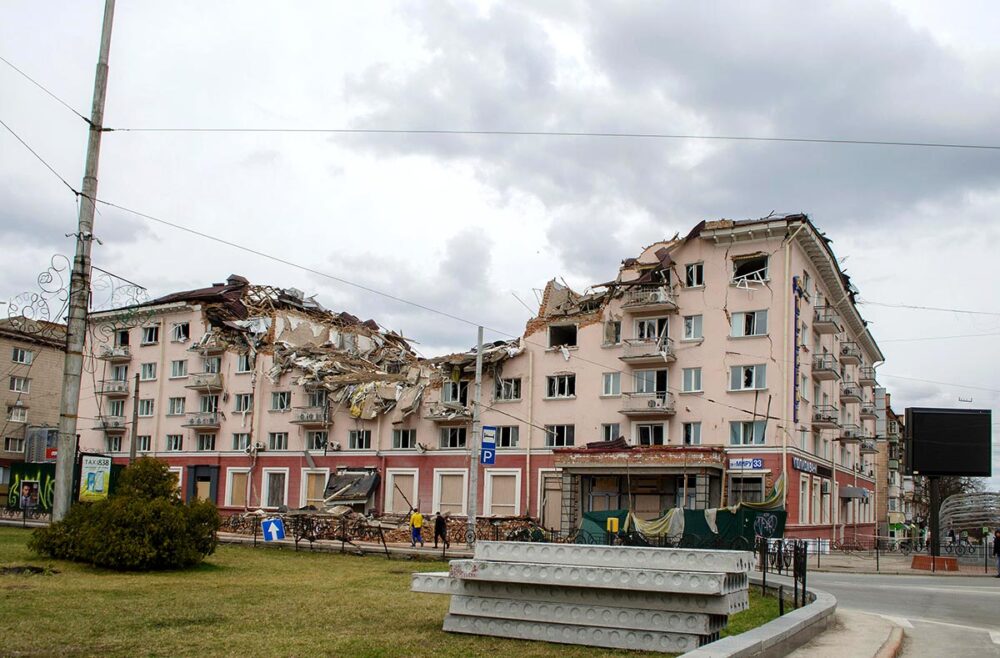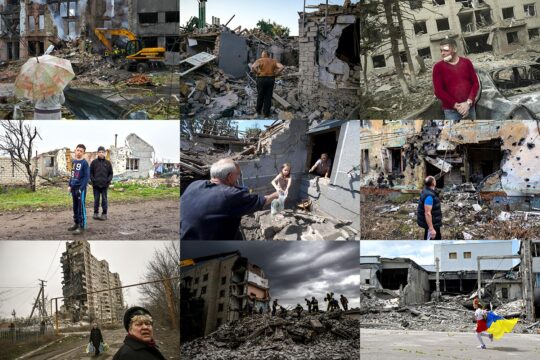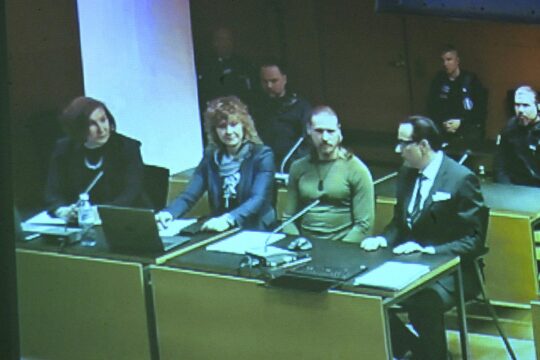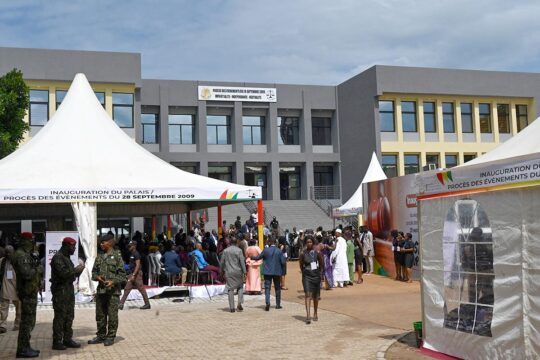On the night of March 12, 2022, during the siege of Chernihiv, in Northern Ukraine, Russian troops fired an Iskander missile at the Hotel Ukraine. Russian propaganda media aired several reports about this. They would not deny that the hotel was the target, stating that the purpose of the attack was to “neutralise foreign mercenaries”.
Mykola Tarasovets, who represents the hotel’s owner, says he wants compensation from the one who caused the damage – Russia. The businessman is in no hurry to rebuild, as the management company estimates that the cost of the reconstruction is more than 12 million dollars, and he is unaware of any mechanism for compensation from the state or who to reach out to in this regard.
In fact, what is the possibility of compensation for the losses of businesses that sustained damage as a result of the Russian invasion at the expense of frozen Russian assets from around the world? What course of actions has been developed by Ukraine? In which countries are these assets kept? What lawyers and experts say about this, and whether businesses are likely to obtain real money?
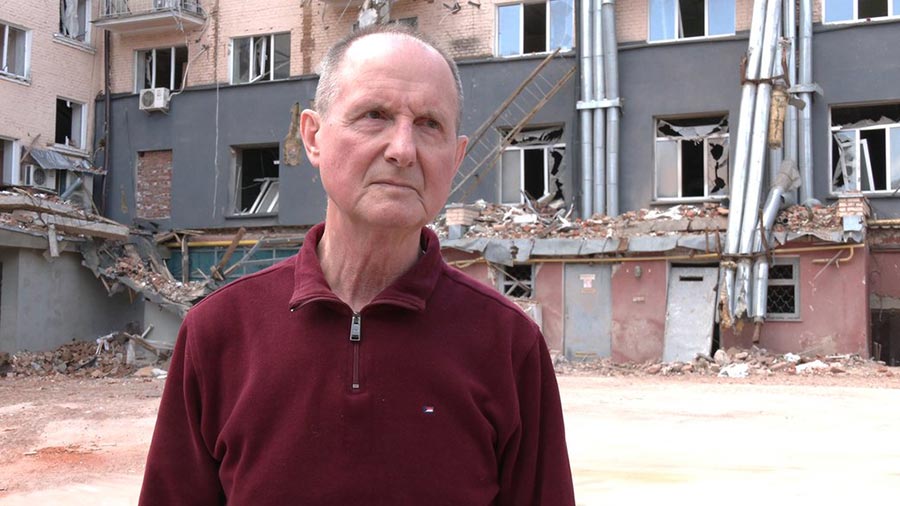
“We want Russia to reimburse us for everything”
The Office of the President of Ukraine responded to Suspilne that as of May 2024, more than 270 billion US dollars worth of Russian assets remain frozen in various countries worldwide.
“After February 24, 2022, Russia stopped releasing its official data. Most of Russia's assets are frozen in European countries. The largest part, namely about 205 billion dollars, are in Belgium (specifically, in the Euroclear depository), about 21 billion is frozen in France, about 8 billion in Switzerland, 4 to 5 billion in the United States, and 34 billion in Japan.”
These funds mostly consist of securities. Thus, it is not banks but central securities depositories, such as Euroclear, that get them, Anna Vlasiuk, an analyst at the Kyiv School of Economics, says. “In terms of actual money, there is now more of it. As securities mature, Euroclear receives cash proceeds, because all the obligations remain valid. So, more money becomes available now.”
“Of course, we want Russia to reimburse us for everything. After all, it has destroyed our business,” Tarasovets says. “But I don't know about any ‘algorithm’ of action. Ukraine, as a state, does not have one. Nor is it clear what the damaged business should do next.” In the view of Andrii Klymosiuk, PhD in Law and project manager at the Institute of Legislative Ideas, “this is the basis of tort law that the one who caused the damage must compensate for it. This axiom also applies to the consequences of the most serious violations of international law and war damage.”
Tarasovets does not file lawsuits in Ukrainian courts, because the other party, i.e. the Russian Federation, will be absent from the trial. “This is total nonsense for a trial. The question is how our court files will look in international courts in the future. We have consulted with experts in international law, and they are not particularly keen on this course of action. Therefore, we can only wait for the state to come up with a plan for the businesses damaged by the war.”
Vlasiuk shares this opinion. “The Russian frozen assets are not in Ukraine. We have confiscated what we could, what was under our jurisdiction. Businesses can only wait. It makes no sense to sue Russia in a Ukrainian court. Basically, it is possible, but then it must be enforced in an international court.”
Getting the proceeds of Russian frozen assets
Vlasiuk says that confiscating the assets of other countries is a normal practice in relation to a country with which a state of armed conflict has been declared. “Initially, there was an opinion among all G7 countries that this was not even worth discussing. Now we observe options being discussed for using the income Euroclear receives on frozen assets.”
On June 13, the leaders of the G7 countries finally approved a decision to grant Ukraine 50 billion dollars from the proceeds of frozen Russian assets. Ukraine will be able to receive the money by the end of the year. Previously, the G7 committed to keeping the assets frozen until Russia compensated Ukraine for the damage. Later, the United States, the United Kingdom, Japan and Canada insisted on confiscating the assets in favour of Ukraine. At the time, other G7 countries were against this decision.
According to a joint communiqué issued after the G7 summit in Italy, the World Bank has currently estimated the damage at 486 billion dollars. And “this amount is increasing daily,” the document states.
In May 2024, EU ambassadors agreed on fundamental measures for the use of excess profits from frozen Russian assets for the reconstruction and arming of Ukraine. The EU Council reports that these profits will contribute to further military support of Ukraine, including Ukrainian defence industry businesses, as well as reconstruction programmes. But the potential 50 billion are unlikely to be spent on compensation for destroyed or damaged businesses, says Klymosiuk,.
The approved mechanism stipulates that those central securities depositories in the EU countries that retain more than 1 million euros worth of Russian sovereign assets and reserves will allocate for the above purposes a portion of the net profit from the use of such assets accumulated since February 15, 2024. These funds will be disbursed by the EU's central depository banks every two years and will be used for further military support for Ukraine through the European Peace Facility, as well as to support the Ukrainian defence industry and its reconstruction needs under EU programmes. The funds will be distributed as follows: 90% to the European Peace Facility; 10% to EU budget-funded programmes.
On June 21, at the ECOFIN press conference, European Trade Commissioner Valdis Dombrovskis also said that “the primary use of this revenue will be focused on military support for Ukraine.”
“Ukraine is likely to receive the first instalment from the proceeds of frozen Russian assets by the end of summer 2024. According to our estimates, up to 3 billion euros will be available this year as a result of our initiatives, and the first payment expected to be made is 1.5 billion euros,” Dombrovskis said.
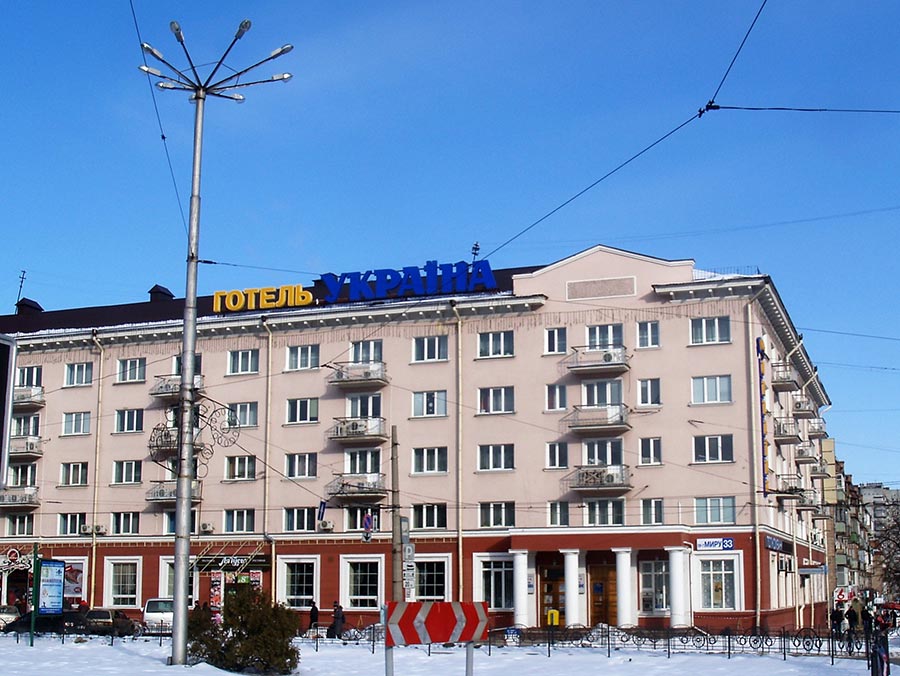
Compensation mechanism : what does it mean?
Another option is a compensation mechanism, says Vlasiuk, which is currently being developed for this very purpose. “But this is a rather complex, multi-component, politically motivated issue. More political than legal,” Klymosiuk said. “After all, the possibility of compensation at the expense of certain frozen assets, their proceeds, and the confiscation of these funds are distinct issues that require separate discussion. There are no practical, effective tools to compensate for the damage caused at this point. There are only certain government programmes providing partial compensation and financial assistance to the victims of the war.”
An international compensation mechanism was discussed in Ukraine, as well as with international partners during the first months of the full-scale Russian invasion. A relevant decree on its elaboration was signed by the President of Ukraine on May 18, 2022. The Register of Damage for Ukraine was officially launched in The Hague on April 2, 2024, to compensate for the damage caused by Russian aggression. According to the Ministry of Justice, the compensation mechanism includes the following elements: The Register of Damage will receive claims for damage, loss or harm; the Claims Commission will review claims and grant compensation based on information from the register; the Compensation Fund will be the source of payments based on the commission's decisions and is expected to be funded with the sovereign Russian assets confiscated abroad.
So can businesses expect compensation for damage at the expense of frozen Russian assets and what is the course of action for business owners? Iryna Mudra, Deputy Head of the Presidential Office, said that “the first thing to do is to submit a claim to the Register of Damage” which on March 26, approved more than 40 categories of claims that can be submitted. “It is currently possible to submit claims for the first category” – damage or destruction of residential property. “Other categories are expected to be introduced in the course of this year. In particular, one of the approved categories of claims is category C3,” she says : “damage to business and other economic losses.”
“It will take years”
“The Register of Damage is only the first component of the international compensation mechanism,” the Ministry of Justice indicated. The two other components are yet to be established. But according to Mudra, the submission of the first actual claims from victims to the Register of Damage is a sign that the suggested concept of a compensation mechanism has become a reality. “Applicants can already submit to the Register the claims related to damage or destruction of residential property. It is expected that between 300,000 and 600,000 claims will be submitted in this category,” the Register of Damage reports. When the Register becomes fully operational, it is expected to have up to 45 employees. Ten of them will work in the Kyiv office of the Register, which was opened on March 22.
Klymosiuk says that the concept of the future compensation mechanism and the launch of its first component, the Register of Damage, was implemented in a “world history record-breaking time”. “It was created and launched less than a year after the full-scale invasion began. This is very fast for world history, and we hope that the other components of the compensation mechanism, in particular, the Commission, which will review each claim and grant the actual payments to the victims, and the fund, which is the main source through which these payments will be made, will be established quickly as well.”
“It will take years,” Vlasiuk warns.
Collecting evidence
Owners of the destroyed Hotel Ukraine in Chernihiv, as well as other legal entities, cannot yet submit claims to the Register of Damage. “It should be understood that at this stage we are only talking about registering damage, actual payments will be made only after the relevant Commission is launched and the fund is filled up. However, there is no doubt that such compensation will be provided sooner or later,” says Klymosiuk. “Every applicant, regardless of whether it is a legal entity or an individual, should collect as much evidence as possible, because we do not know what the standard of proof will be. For example, [whether] written evidence and documents [will be enough], or whether witness testimony will be enough, or whether something else will be needed. Usually, in such cases, the standard of proof is lowered to take into account the objective circumstances of the war. However, it is important to collect as much evidence as possible to prove that the damage was caused by Russian aggression, as well as confirmation of the scale of the damage, if possible. This will increase the chances of receiving proper compensation at the expense of Russian assets in the future.”
Tarasovets explained that law enforcement officials opened criminal proceedings and conducted expert examinations at Hotel Ukraine. "The SBU [Ukraine’s security services] was in charge of this. They provided us with all the files. We copied them. Then there was a follow-up study of what kind of missile and from where the hotel was hit. There is also an expert's report on the building’s unusable condition. So, on our part, we have gathered everything we could."
As of June 22, the Hotel Ukraine is surrounded by a fence. Dismantling work is in progress to ensure that this unsafe building in the heart of Chernihiv does not endanger the citizens. Dismantling is being carried out at the expense of the owners of the hotel, Tarasovets explained. “At each phase, we will evaluate whether something can be preserved or whether we will have to dismantle the building completely. This is the first time for us dealing with such an experience. Safety comes first.”
This report is part of our coverage of war crimes justice produced in partnership with Ukrainian journalists. A first version of this article was published on the "Suspilne" website.


